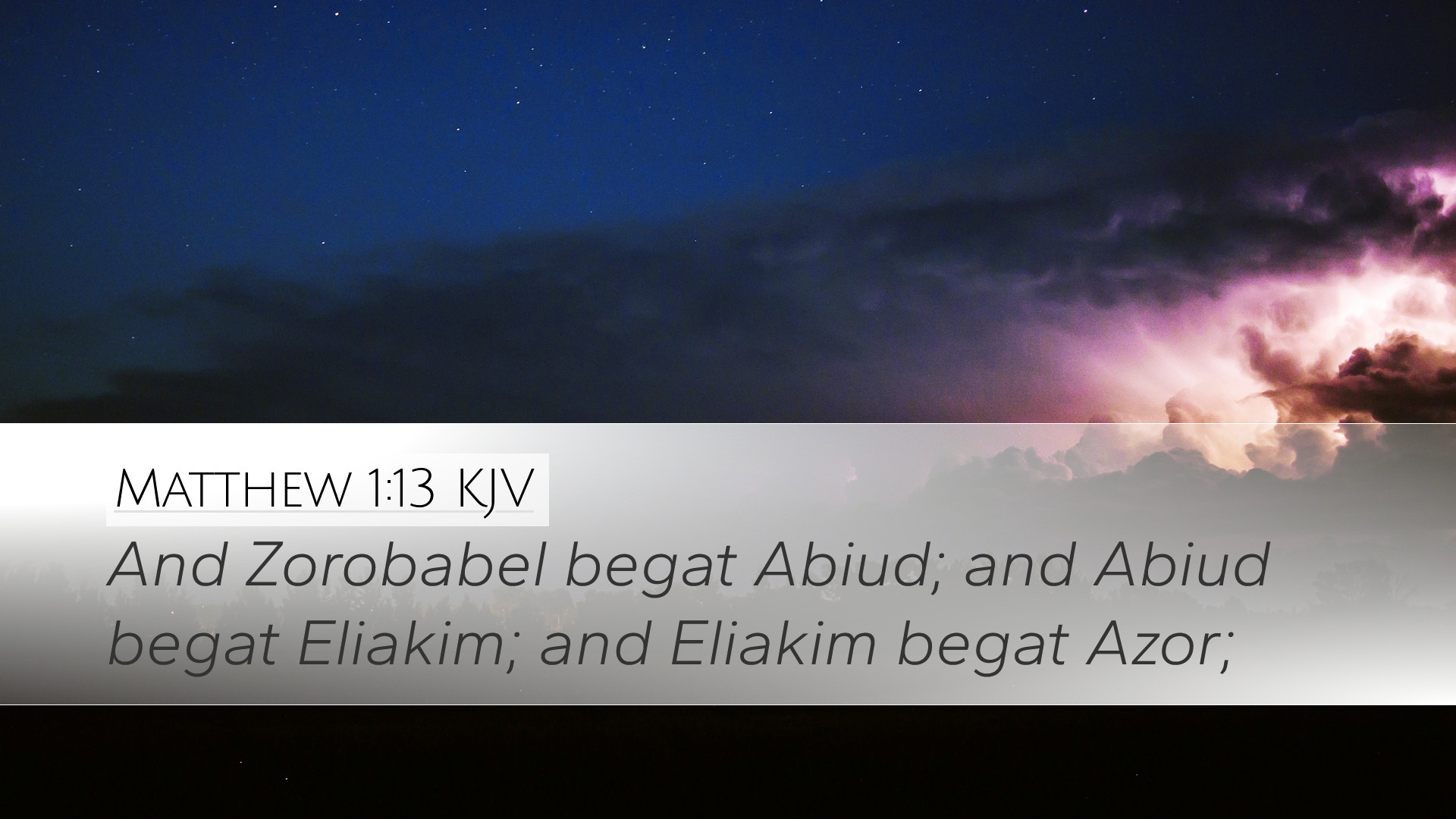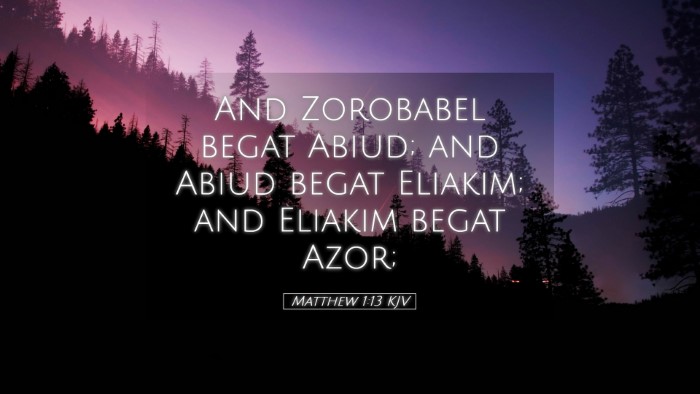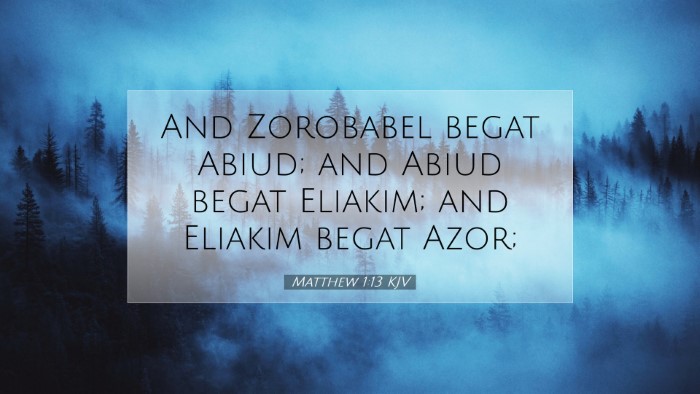Commentary on Matthew 1:13
Verse Context: Matthew 1:13 reads, “And Jesse begat David the king; and David the king begat Solomon of her that had been the wife of Urias.” This verse is situated in the genealogy of Jesus Christ, illustrating His lineage and rightful claim to the throne of David.
Overview of Genealogy in Matthew 1
The genealogy in Matthew serves multiple purposes: establishing the connection between Jesus and the Old Testament heritage, emphasizing the fulfillment of prophecy, and asserting Jesus’ authority as the Messiah. The inclusion of significant figures, particularly David and Solomon, reveals the royal aspect of Jesus’ lineage.
Insights from Matthew Henry
David’s Significance: Matthew Henry emphasizes the importance of David in the lineage. He notes that David was a man after God’s own heart, selected not for his appearance or stature but for his character and faithfulness. The mention of David serves as a reminder of the covenant God made with him, promising that his line would endure forever.
Solomon and His Blessings: Solomon’s inclusion as David’s successor reinforces the prophetic office and wisdom bestowed upon him. Matthew Henry highlights that Solomon’s wisdom is symbolic of Christ’s ultimate wisdom and leadership. Additionally, the phrase “of her that had been the wife of Urias” introduces an element of grace and redemption, illustrating God's ability to work through human failures and sin.
Insights from Adam Clarke
Adam Clarke provides a deeper analysis of the word “begat,” noting its importance in establishing lineage. He remarks that this genealogical record is not merely historical; it holds theological significance in validating Christ’s Messiahship. Clarke also comments on the controversial figure of Bathsheba, pointing out that her inclusion in the genealogy highlights God’s grace in overcoming the scandal of adultery and murder associated with David’s sin.
Theological Implications: Clarke emphasizes the fulfillment of the prophecies regarding the lineage of the Messiah. He connects this verse with prophecies found in 2 Samuel 7:12-16, which establishes the eternal nature of David’s reign through the Messiah, reinforcing the hope for Israel.
Insights from Albert Barnes
Albert Barnes expands on the phrase “and David the king begat Solomon,” discussing the distinction of David as the king of Israel. Barnes notes that the inclusion of titles and significant roles in the genealogy accentuates the divine plan and kingship of Christ. He provides a historical context, explaining that while the Jewish leaders of the time viewed genealogy as a matter of great significance, it served to affirm Jesus' rightful place as heir to the Davidic throne.
The Caution of Inheritance: Barnes also cautions about the human element involved in the genealogy, particularly regarding the imperfections of its characters. He stresses that despite human weaknesses, God’s providential plan unfolds. The reference to Bathsheba as the wife of Urias invites reflection on God’s grace and redemption, showcasing that even through flawed dynasties, the divine purpose prevails.
Key Theological Themes
- The Sovereignty of God: Each name and event in this genealogy reflects God’s sovereign hand in history.
- Redemption: The mention of Bathsheba speaks to the central theme of redemption found throughout Scripture.
- Faithfulness to Promises: God’s promises to David find their ultimate fulfillment in Christ, demonstrating His faithfulness across generations.
Concluding Thoughts
The genealogy found in Matthew 1:13 serves as a profound reminder of the intertwining of divine purpose and human experience. For pastors, students, theologians, and Bible scholars, this text invites deep reflection on the nature of God's grace, the fulfillment of His promises, and the profound ways in which the New Testament builds upon the Old Testament narrative. As we examine this genealogy, let it inspire us to recognize God's handiwork in our own lives and to understand that through Christ, all histories converge into the story of redemption.


